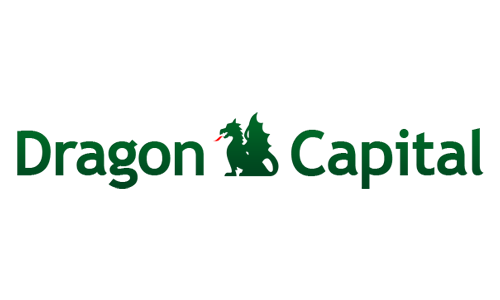
Dragon Capital Investment Group has revised its forecast for the average annual hryvnia exchange rate in 2024 from 37.3 UAH/$1 to 40 UAH/$1, and the exchange rate at the end of the year from 39.0 UAH/$1 to 42.0 UAH/$1, but maintained its GDP growth forecast at 4.0%.
“We expect the hryvnia to continue to weaken against the US dollar in a controlled manner. We have revised our forecast due to the change in the National Bank’s approach to managing the exchange rate in early 2024,” the group said in a press release on Tuesday.
According to Dragon Capital’s updated estimates, external financial support for Ukraine’s budget from partners this year will amount to $37 billion and will support the economy’s resilience.
“Although the approval of the support packages has been significantly delayed and the total amount of funding will be slightly less than we expected ($40 billion), these funds will be sufficient to keep the NBU reserves at current record levels around the current record $43 billion (previous forecast – $45 billion) and to finance the budget deficit without issuing,” the release says.
However, the investment group adds, the budget situation remains tense and will require mobilization of internal resources. The law on the state budget for 2024 needs to be significantly revised, as the defense and security expenditures envisaged in it are clearly not enough to adequately finance the army throughout the year.
“The updated law should also take into account the impact of increased mobilization, which, according to our estimates, will cost the budget of all levels $1.5-2.0 billion (including the indirect impact on revenues). In general, military spending in the general fund of the state budget will need to be increased by at least $9 billion to keep it at the level of last year,” Dragon Capital believes.
At the same time, the company believes that this increase can be partially financed by reducing non-military expenditures (for example, to service external commercial debt after its restructuring) and additional revenues (tax on unexpected bank profits, increased transfers from the NBU, and increased excise rates on fuel).
In general, the investment group expects the government to slightly reduce the public administration budget deficit this year to about UAH 1.6 trillion from UAH 1.7 trillion last year (excluding grants) due to an organic increase in tax revenues from economic growth, additional measures to fill the budget revenue side and a restrained approach to non-defense spending.
“The hryvnia depreciation will not have a decisive impact on the budget deficit dynamics, as part of the military spending is directed to the purchase of imported goods and compensates for tax revenues that depend on the hryvnia exchange rate. However, a weaker hryvnia helps to reduce the need to finance the budget deficit with domestic borrowing, as it increases the hryvnia equivalent of international aid,” the press release said.
At the same time, the revision of the exchange rate forecast led to a decrease in estimates of Ukraine’s nominal GDP this year to $190 billion from $201 billion and an increase in the forecast of public debt at the end of the year from 85% of GDP to 92% of GDP, although in absolute terms the forecast was raised slightly – from $164 billion to $166 billion.
Dragon Capital assumes that the NBU will change its approach to managing the exchange rate in accordance with its own assessment of the balance of risks to financial stability. At the same time, the record level of international reserves will allow the central bank to continue to keep the situation in the foreign exchange market under control and avoid uncontrolled devaluation, provided that domestic economic policy is aimed at maintaining macroeconomic stability and international partners continue to provide financial support in the minimum necessary amounts, the investment group emphasized.
Given the slowdown in inflation and stable inflation expectations, moderate devaluation does not pose risks to macrofinancial stability, but supports export competitiveness, helps the budget by reducing funding needs, and reduces the loss of reserves from the initial effects of currency liberalization, Dragon Capital believes.
“We expect that the NBU will take a balanced approach to determining the further dynamics of the hryvnia exchange rate, as the population’s sentiment remains vulnerable in the context of the war, and it is unlikely to determine the equilibrium level of the exchange rate using standard methods given the specifics of the balance of payments structure caused by the war,” the press release said.
According to it, the inflation forecast for 2024 has been improved from 8% to 7.6%, and the discount rate at the end of the year has been reduced to 13% from 15%.
The investment group explained that the forecast of GDP growth in 2024 by 4.0% was maintained by the recovery of exports by seaports and the development of the military-industrial complex, which will be the main drivers of economic growth this year and will outweigh the negative impact of increased mobilization and electricity shortages, assuming that the authorities will be able to organize mobilization in such a way as to limit the negative impact on business.
“According to our estimates, given the existing capacity of the power grid and current import opportunities, the electricity shortage will be quite moderate in summer and autumn, which will allow enterprises in most industries to maintain production volumes at levels close to current levels and therefore increase them compared to 2023,” the investment group believes. The growth will be especially noticeable in sectors that were depressed due to the lack of maritime exports, namely ore production, metallurgy, and cargo transportation, Dragon Capital added.
The company also predicts that thanks to the resumption of seaports and a larger-than-expected agricultural harvest last year, exports of major commodities will grow by 35% to 109 million tons this year, which will help keep the foreign trade deficit from widening further (its estimate has been reduced to $29.0 billion from $32.9 billion), despite rising imports and lower global agricultural prices.